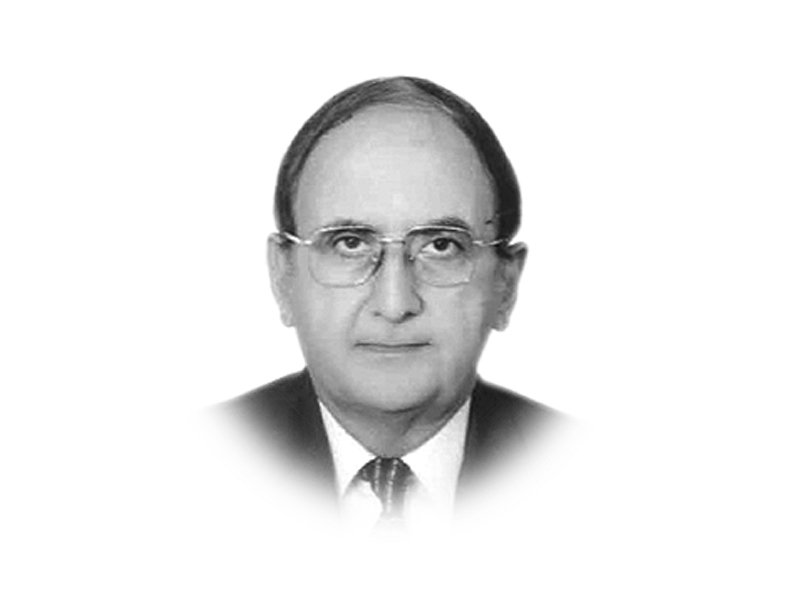
A troubled political system like ours cannot be effectively managed singlehandedly by either the civilian or the military elite alone. They need to work in harmony, pursuing cooperation where they need to work together and, at the same time, respecting each other’s institutional autonomy. The shared policymaking areas include internal and external security affairs and the interaction between the demands of national security on internal political and economic matters as well as the financial implications of security. Each side also has its own exclusive domain. The civilian government manages exclusively political issues and day-to-day governance affairs and provides basic services to the common people. The military’s exclusive domain includes internal and organisational service matters, disbursement of the defence budget, and professional affairs.
There are areas of military activity whose boundaries are not yet fully determined. One of these is the periodic civilian demands on the military to undertake tasks outside of its professional domain. The ‘Aid to Civil’ is an established role of the military. However, if it is called out too frequently for civilian tasks, it makes the civilian government vulnerable to criticism that it is unable to perform its primary tasks. A good example of civilian-military cooperation is the handling of terrorism. The military deals with terrorists and criminal elements that challenge the writ of the state. However, the civilian aspects of extremism and terrorism are the responsibility of the civilian government. The elimination of terrorist hideouts and training centres is important but this cannot be achieved if the civilian dimension of terrorism is not addressed. Counterterrorism and counter-insurgency efforts must have full political ownership of the civilian government, the political elite and society.
On June 7, a meeting was called between the military top brass and top civilian officials to discuss the current security and foreign policy challenges. The army chief and his principal staff officers sought more activism from the civilian government to address the challenges. We then saw the Foreign Office showing activism by giving a briefing to some diplomats in Islamabad on Pakistan’s policy on a number of issues. The adviser on foreign affairs addressed a press conference on Pakistan’s relations with the US and Afghanistan, and our membership bid for the Nuclear Suppliers Group. Several other officials and ministers gave a special briefing on Pakistan’s economy to some foreign diplomats and the Pakistani media on June 9. The key issue is why the civilian leadership did not embark on active diplomacy on its own? Why was it slow in responding to diplomatic and economic challenges until the establishment pushed it? Pakistan’s current foreign policy crisis and a slow response to the changing regional and global situation represent a multifaceted dilemma. The three dimensions of the crisis include: a lack of a comprehensive vision of what Pakistan should achieve in the next five to 10 years and through what strategies rather than complaining about the whole world undermining Pakistan; a leadership crisis in the sense that too many people are poking their noses in foreign policy, resulting in incoherence and inaction; and personal preferences of the rulers that may not necessarily advance our long-term interests.
Pakistan needs smart diplomacy to deal with India, Iran and Afghanistan as well as to cope with the current trouble in its relations with the US. Smart diplomacy seeks to find alternative ways to deal with a situation when one option does not offer a credible opportunity. You do not wait for the situation to change on its own; you invoke different diplomatic options to create space for yourself. If India has a secured trade route to Afghanistan and Central Asia through Iran, Pakistan should not view this as a threat. Instead it should quickly take practical step to obtain gas and electricity from Iran. If this economic connection is built, Iran will have greater interest in cultivating Pakistan because this economic relationship will not require the use of a land route of a third country.
Pakistan has shown greater interest in obtaining LNG/gas from Qatar and it is hoping that gas will also be available from Turkmenistan through the TAPI project. Similarly, Pakistan is very keen to get electricity through the CASA-1000 project from Central Asia. However, given the law and order situation in Afghanistan and Pakistan’s troubled relations with that country, TAPI and CASA-1000 may not materialise in the near future. Pakistan wants to wait for these projects rather than seek gas and electricity from Iran. Our future demand for gas and electricity is going to be so high that we will be in a position to consume gas and electricity from all these sources. However, our rulers are pushing their personal preferences rather than adopting a realistic approach to address the energy problem.
There are many other examples from Pakistan’s foreign and security policies, which show poverty of vision and leadership in exploring new options. Had China not been so supportive, Pakistan would have faced even more diplomatic embarrassment at the global level. Pakistan’s civilian leadership and the establishment have now adopted a more forthright position in their interaction with the US delegation that visited Pakistan on June 10. Pakistan has asked for reciprocity in relations rather than the US presenting a demand list for dealing with terrorism. Hopefully, the vitality demonstrated in our foreign and security disposition after the meeting between the military top brass and the civilian leadership will improve the prospects of initiating smart diplomacy and new options for coping with our current economic, military and diplomatic pressures.
Published in The Express Tribune, June 13th, 2016.
Like Opinion & Editorial on Facebook, follow @ETOpEd on Twitter to receive all updates on all our daily pieces.













COMMENTS (8)
Comments are moderated and generally will be posted if they are on-topic and not abusive.
For more information, please see our Comments FAQ